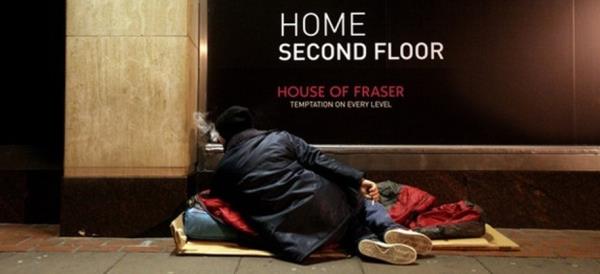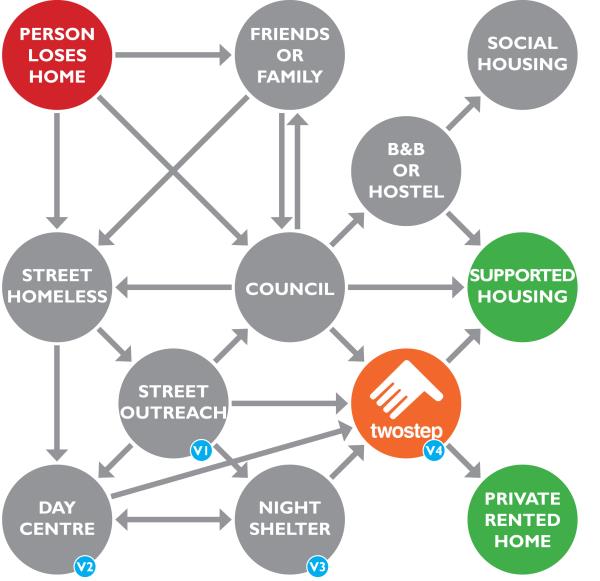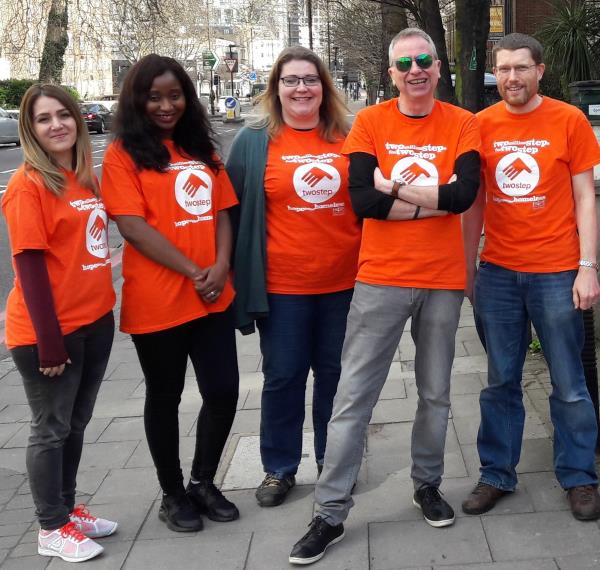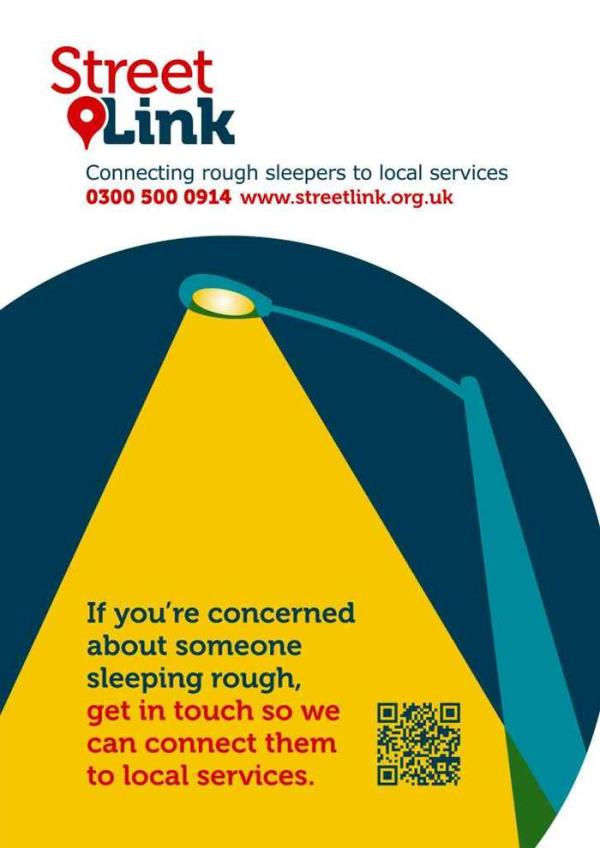Get involved
If you would like to help in a practical way, here are some options:
1. Be prepared to speak to people who are homeless you come across - see section below
2. Volunteer at a local day centre or night shelter - we work in partnership with many other organisations and can probably recommend one close to you. For more information on how you can volunteer locally please email [email protected]
3. Become a supporter or fundraiser to support our work that help house many people both before and after they have to survive on the streets - please contact us
4. Do a student placement at our office - please contact us for more details.
How to talk to someone on the street
Our hearts are stirred when we see people sitting or sleeping on our streets. If we don't really know how to help, we can feel the temptation to walk by or just give money. Is there a better way?

Homelessness is very isolating. Those who are on the street can feel invisible. Rather than walking by, you can start by getting down on their level, introducing yourself and ask about their situation. Many people on the streets are using day centres and getting some kind of support; others might need some advice about how to get help or would just appreciate somebody taking the time to talk and listen to them.
How to offer help
If someone is not being helped by any particular organisation and is sleeping rough, you can contact streetlink.org.uk/ . You can also to recommend any local homeless day centres that you know of or can find out about that could help them directly or refer them elsewhere including to Two Step if they are suitable for our service. (See nextmeal.co.uk for details of local sources of help in London and Homeless England for organisations in the whole of England.)
Example:
One of our supporters spoke to a gentleman in his 50s who was sleeping in a hospital waiting area in North London. She advised the person to go to the local council for help and the council referred him to HOPE worldwide. We helped him to get a place in a night shelter and to find accommodation about a week later.
Make sure that you are not putting yourself in an unsafe situation e.g. by talking to someone who is drunk or in a group of people. You can use the acronym ALERT to help you talk to people you believe might be homeless.

Ask – Get on their level, introduce yourself and ask if they are homeless and if anyone is helping them. If they are not, they might benefit from being directed to a local project that can help them claim benefits for example.
Listen - Many people are happy to share their story of what happened and what they are trying to do about it. They may request something in particular that you can get them – better to ask than to assume.
Empathise – Empathy and compassion are very powerful. Many people become homeless because of things beyond their control. Even if you can’t help directly, people will appreciate that you took the time to listen and empathise.
Respond - Depending on what they share you might be able to do something. Share what you can do (see below) and ask them if they would like you to do that.
Take Action – You could do something there and then like asking them if they would like something in particular to eat or drink, or that would help them keep warm or cool depending on the weather. To find somewhere to keep cool visit london.gov.uk/cool-spaces/, to send an alert to ‘Streetlink’ for someone who is sleeping rough use streetlink.org.uk/
In addition, many people are not aware that under the Homelessness Reduction Act, local authorities have a legal duty to offer meaningful advice and assistance to those that are facing homelessness. Click/tap Get help to read about the assistance that local authorities are supposed to provide. If you wanted do a bit of research to find out about local organisations you could use Homeless England or nextmeal.co.uk.
Where is a local day centre in London?
In London, you can see an interactive map showing all the day centres in London here at the LHF Atlas site. By clicking on each location on the map, you can find out more.
Should I give money to people who are begging?
It is important to be aware that there are people who are not homeless but are begging to supplement their income, to feed an addiction or because they have not made a claim for the benefits to which they are entitled. In all these cases, giving money is not helping them to deal with the real issue. If you want to be sure that your money is going to help the homeless then it is advised to give it a charity like HOPE worldwide that is working to help the homeless. To donate to the Two Step programme, click/tap donate
Ed Stafford who made the Channel 4 documentary 60 days on the streets said the following in his interview about his experience,
'I wouldn’t give directly to homeless people anymore, sadly. I think that there is plenty of food available for them, and so a lot of any cash they get is spent on drugs and alcohol. I do worry the public enable their lifestyle to some degree, with all their generosity.
But despite that, obviously I feel huge compassion for these people, because no one grows up wanting to end up on the streets...All of them have been driven to the streets by tragedy in their past - whether it’s something that happened in their childhood, a parent that’s an addict or an abusive partner.
I don’t believe the solution is cash handouts – but I do believe that they need a great deal more support and help than they are currently getting, to escape their situation.'
By supporting Two Step, you can be part of the solution. To donate to the Two Step programme, click/tap donate









